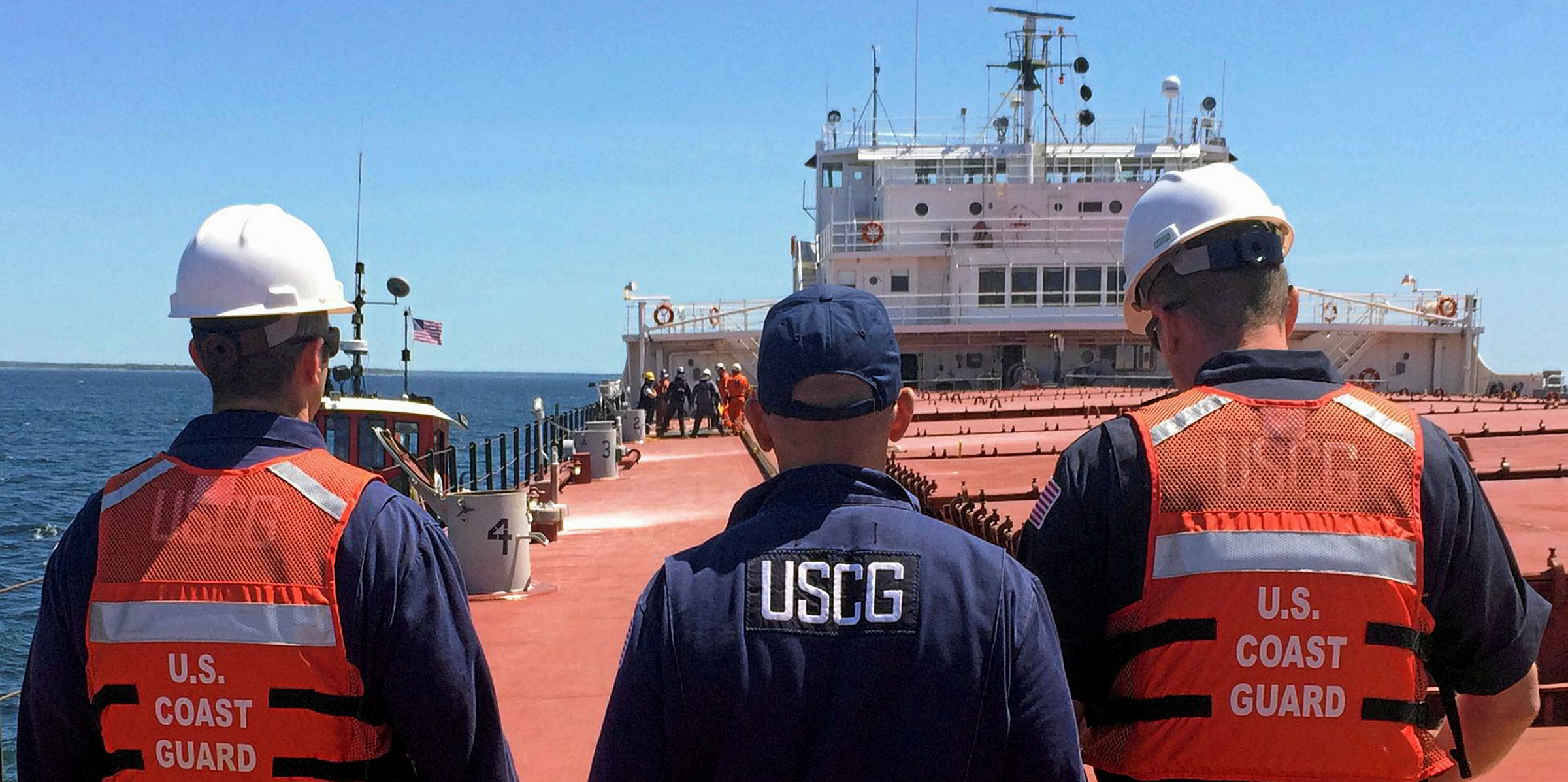In gearing up to implement IMO 2020, the US and Canada bring years of experience enforcing an even stronger mandate.
Since 2015, the North American emissions control area (ECA) has capped the allowable sulphur content in bunkers to 0.1% for ships sailing along their coasts.
The US Coast Guard (USCG) can hold non-compliant ships within the ECA and issue civil penalties, spokeswoman Lieutenant Amy Midgett says.
“As per current IMO guidelines for port state control [PSC] officers, the use of fuel oil exceeding the sulphur limit is a deficiency of a serious nature and may warrant detention,” she adds.
The USCG refers penalties to the Environmental Protection Agency, which levies fines from $150 per tonne of fuel oil at 0.15% sulphur content to $750 for every tonne at 3.5% or more.
The USCG conducts 9,500 PSC examinations on foreign vessels per year to ensure compliance with the ECA and current IMO guidelines to prevent air pollution.
“The Coast Guard believes the IMO and its member states are working diligently to ensure consistent enforcement of Marpol Annex VI requirements and supports them in this effort,” Midgett says.
Certain ships in the ECA are subject to different sulphur limits, but they will also need to adhere to at least the 0.5% limit set by IMO 2020.
The USCG may conduct laboratory tests on fuel oils, particularly to support civil cases or criminal prosecution.
USCG policies on marine fuel sulphur content were discussed at last month’s meeting of the IMO’s Pollution Prevention and Response subcommittee in London.
Transport Canada is developing a “concentrated inspection campaign” with other nations to enforce emission standards, according to spokesman Simon Rivet.
“There is already a system in place to address and monitor any non-compliance fuel issues,” he tells TradeWinds.
“Any decisions to select a ship for fuel testing would be based on a number of factors, including ship compliance and company compliance history, inspection requirements and review to verify sulphur content.
“The government’s fuel verification policy allows for onboard ship fuel sampling and testing at all major Canadian ports to ensure compliance with fuel sulphur content standards. A ship found in breach of the regulation is subject to enforcement action.”
Enforcement measures range from verbal warnings to legal action. Canada’s transport minister may also deny the issuing of documents and detain non-compliant ships.





